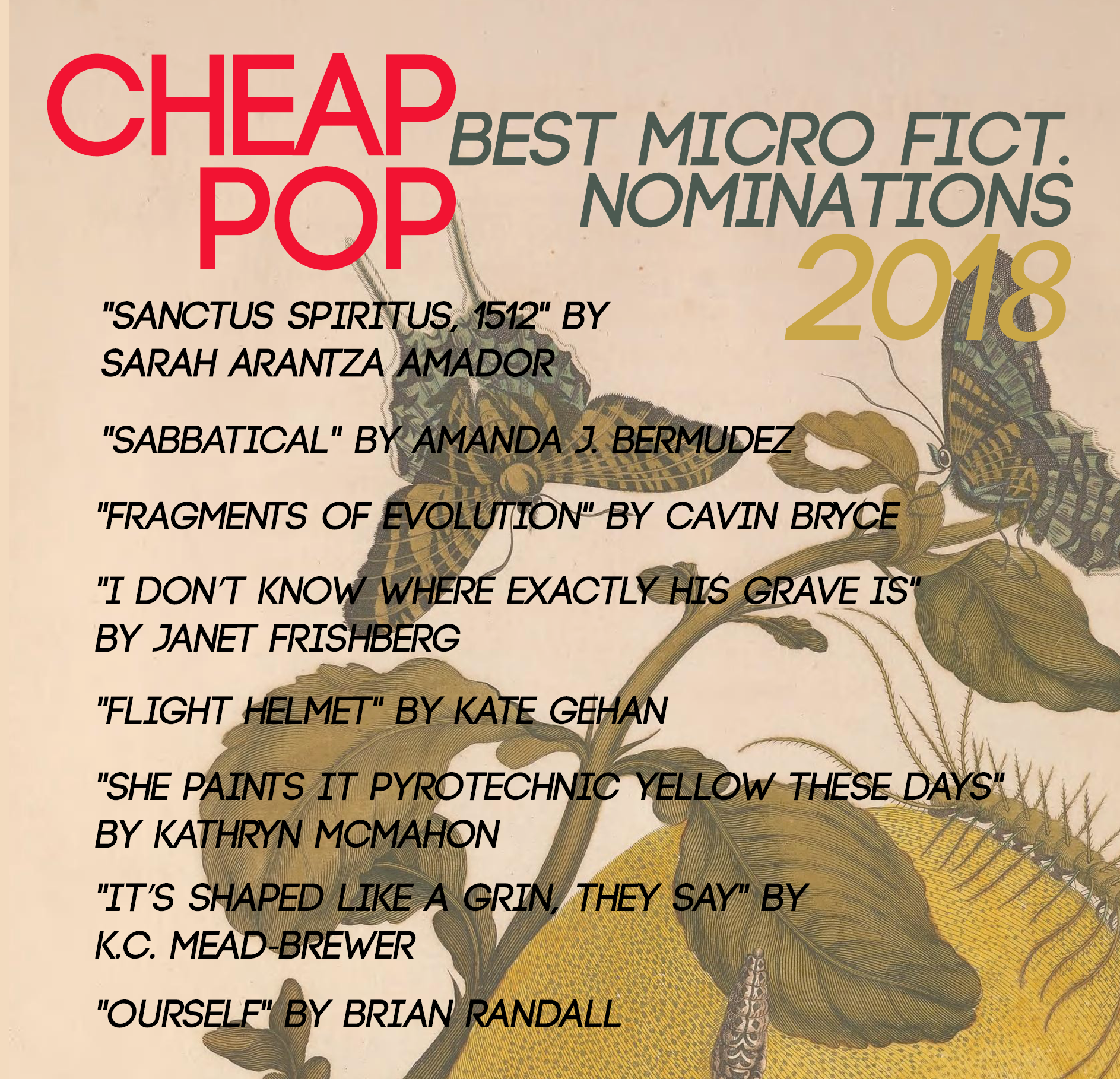The summer you laser off all your hair is the same summer your twin sister’s left breast becomes unfaithful, lets something else in. That’s how she’s doing: the language of an affair. You’re coming back from your first appointment—belly, when she calls. “Hairless as the day I was born,” you cheer, passengers’ eyes around you lifting. A lanky guy who looks like a boy you once went to school with straightens up. “Lump,” your sister says, her voice a wet mop. “What a dick.”
Next appointment: armpits. The doctor warned this one might be more painful, and you find yourself thinking about pain, being in it, how much you’ll be able to take. The sky today is dirt blue. The boy who looks like Michael sits across from you, his face in a paperback. You want to ask him what word he’s on, and if it’s a good one could you borrow it?
“Lumpy,” your sister says, eight hundred miles away. “Lumpelstiltskin.”
“That doesn’t even make sense.”
“A bad joke always makes sense.”
It’s blazing hot, humid. Your asshole is a real asshole. You can’t sit. The train’s packed. You stand and nose-breathe. You’re craving something: bubblegum, glass of lemonade, swimming. You close your eyes, ass prickling, remembering when your mother took you and Jen to the public pool; how you sprung off the high-dive, Jen yelling cannonball! at the top of her lungs. Back when the only hair you cared about—on your head. The only problem with breasts—not having any.
“Bastard’s taking off,” she says, then switches the subject. “When are you coming?” Her voice is a girl’s.
The next time you see Michael, you reason he must live practically on top of you. You consider asking him, in an easy-going way: Michael, do you live on top of me? Don’t you remember you left me? Ten stops later the doors shut with him inside and you out. You consider palming the door. “Come back,” you say, your throat tar-hot, “come here.”
On Friday your mother calls. “I have an appointment,” you say. The line’s a cold hand. “Julie,” she says, making your name into a newfound cruelty. “Mom,” you say, but it’s not the same.
Vagina’s a motherfucker. You stay in bed, call in sick. The thing with your hair isn’t a sign of solidarity, you want to tell everyone, it’s the opposite.
Last one: eyebrows/lip. The sky’s a sickly green. It reminds you of home, tornado season. Your sister crawling into the bathtub, holding you against her chest, whispering: I bet you could fit yourself inside something tornado-big, no problem. “Imagine a tube of lipstick,” she’d say. Think how easy it’d be to hide. All you’d have to do was wait for someone to come, pick you up, pop the cap. Twist, twist. Until all of you was out, exposed like a shadow. Until a small voice leaned close to the top of your pink little shadow-head, asked: what went wrong, honey? Do you even know?














